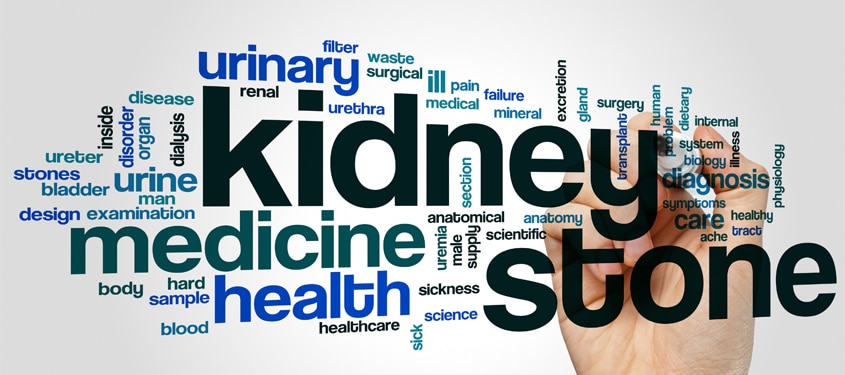Each year, more than half a million people go to the emergency room with kidney stone problems. While kidney stones are painful, they are common and treatable.
A kidney stone is a solid piece of material made from chemicals that form in the kidney from substances that normally dissolve in the urine. They often present in individuals between the ages of 20 and 70, and they are more common in men. If you have had kidney stones, you could be more likely to get them in the future.
The main cause is not drinking enough water or fluids. The recommendation is 100 ounces of fluid daily, which is a lot of water — especially for those who really do not like to drink water.
Genetics can also be a factor. So unfortunately, despite their best efforts, some individuals may continue to get them. There is no evidence to prove that kidney stones are an environmental issue.
Avoiding tea and dark sodas can help prevent kidney stones, because those fluids tend to have more phosphoric acid — which increases the risk. If you cannot solely drink water, try at least to avoid tea and dark sodas or have them in moderation. Watching how much animal protein and sodium you eat can also help.
Most stones are calcium oxalate stones that are not dissolvable, which leads people to avoid calcium; however, that is the incorrect approach. Calcium is needed to bind to the oxalate in the gut. It could actually worsen the kidney stone if you were to stop calcium intake.
Treatment options involve medications to prevent or slow the growth of stones, as well as shockwave lithotripsy. However, as mentioned, watching your fluids, calcium, sodium and animal protein intake are great first measures.
Amanda Pond, MD, urologist at Outer Banks Health Urology, can help with kidney stones as well as any other urological issue. Call 252-449-5965 to make an appointment.


